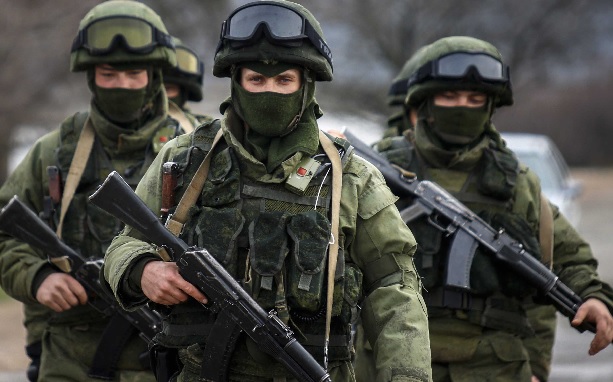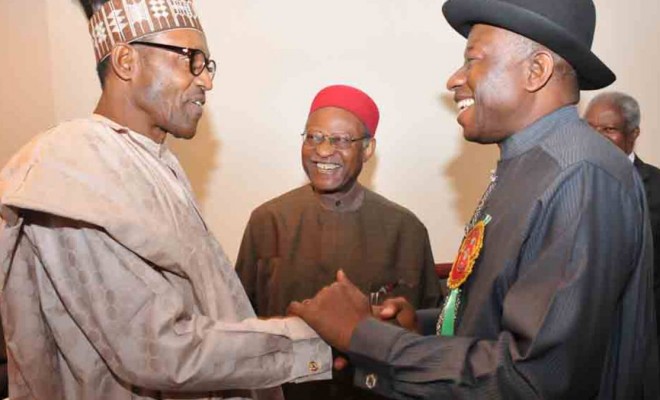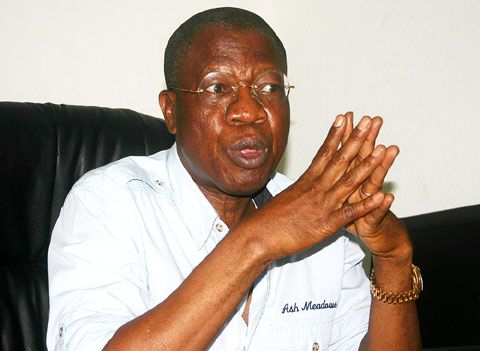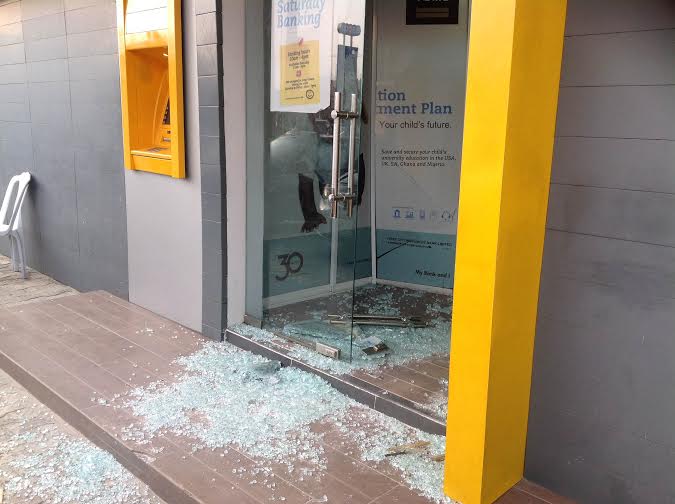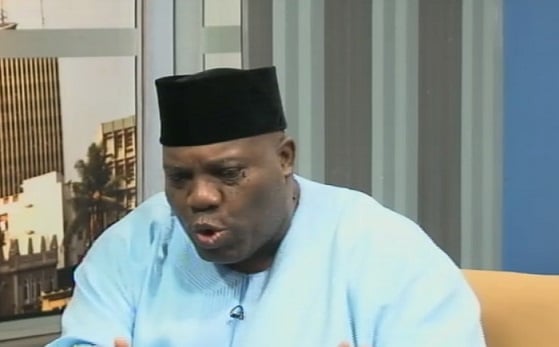Hundreds of mercenaries – professional soldiers paid to fight for armies other than those of their country – from South Africa and former Soviet Union are in Nigeria to help out in the offensive in the north-east against Boko Haram.
Reuters quoted regional security, defence and diplomatic sources as saying that the total number of the mercenaries was way higher than the 100 or so previously reported.
Rumours about the use of foreign “soldiers of fortune” against the Islamist militant group gained substance earlier in the month when pictures surfaced on Twitter showing armoured vehicles rumbling along a street believed to be in Maiduguri, capital of Borno, the state worst hit by the insurgency.
A photo that first appeared on March 6 had shown a white man in a khaki T-shirt and body armour beside a heavy-calibre machine gun on top of one of the sand-coloured vehicles driving through the streets.
Advertisement
A Reuters reporter with knowledge of Maiduguri verified the location of the photo as the Bama road, leading southeast out of the city, near the University of Maiduguri.
Election campaign posters Kashim Shettima, governor of the state, hanging from street lights, lent validity to suspicion that the photo was taken recently.
Mike Omeri, director-general of the national orientation agency declined to comment, referring questions to Chris Olukolade, director of defence information, who as well declined to talk.
Advertisement
President Goodluck Jonathan earlier confirmed the development late Wednesday in an interview with Voice of America, where he said two companies were providing “trainers and technicians” to help Nigerian forces. He did not name the firms, nationalities or figures, though.
However, a West African security source and a South African defence source linked the foreign troops with the bosses of former South African private military firm, Executive Outcomes.
Executive Outcomes was best-known for its involvement in Angola’s 1975-2002 civil war and against Revolutionary United Front rebels in an internal conflict in Sierra Leone in 1995. It disbanded in 1998, under pressure from the post-apartheid government in Pretoria to curtail mercenary activities.
According to the West African security source, several hundred foreigners were involved in running major offensive operations against Boko Haram, and were being paid around $400 a day in cash.
Advertisement
Their impact on the fighting so far could not be quantified, but the general run of the campaign has seen the tide turn somewhat against Boko Haram in recent weeks.
Separately, a South African defence contractor confirmed to Reuters that ex-Executive Outcomes leaders were involved in the deployment, which comes after the six-week postponement of elections in mid-February due to the threat from Boko Haram.
One Abuja-based diplomat said the South Africans were backed by soldiers and hardware from the former Soviet Union in an alliance against Boko Haram, which has killed thousands of people in its six-year campaign to establish an Islamic caliphate in northern Nigeria.
“It’s an incoherent mix of people, helicopters and random kit from all sorts of different sources, but there is an element of internal cohesion from the Nigerian army,” the diplomat said.
Advertisement
“It appears to be a desperate ploy to get some sort of tactical success up there in six weeks for the electoral boost,” the diplomat added. The numbers of soldiers involved were in the “low hundred.”
John Stupart, editor of African Armed Forces magazine, identified the troop carriers as Reva III, manufactured by a Pretoria-based company called Integrated Convoy Protection.
Advertisement
After reports of South African military trainers first surfaced in the Afrikaans-language Beeld newspaper in January, Nosiviwe Mapise-Nqakula, the defence minister, expressed her displeasure, saying any deployment would be illegal under 1998 anti-mercenary laws.
“They are mercenaries, whether they are training, skilling the Nigerian defence force, or scouting for them. The point is they have no business to be there,” she said.
Advertisement
South Africa bans its nationals from participating directly in hostilities for private gain. Georgia, seen as a major source of mercenaries, has laws before parliament criminalising participation in a broad range of foreign military activities.
Advertisement
Add a comment
